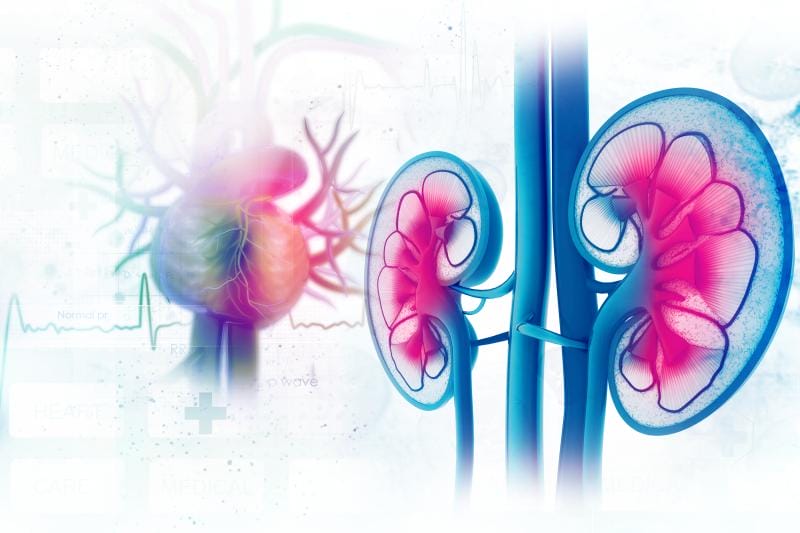Both chronic kidney disease ayurveda (CKD) and atrial fibrillation (AF) share many risk factors. More people are experiencing concomitant conditions such as AF and CKD. Many intricate interlinking mechanisms causing significant consequences should be managed. There needs to be more worldwide agreement for using oral anticoagulants (OAC) in AF and CKD. The significance of the effects of co-existing AF and CKD should thus not be understated.
What is AF?
An example of an arrhythmia, or abnormal heartbeat, is atrial fibrillation (AF). It is the most typical kind of arrhythmia. AF is often found as; valvular AF, which is brought on by a cardiac valve issue, and others as non-valvular AF (NVAFs). There are many NVAFs. Paroxysmal AF sometimes comes and goes without treatment, but it can sometimes be chronic.
A rapid or fluttering heartbeat, chest pain, dizziness and shortness of breath are a few common symptoms of AF.

What is CKD?
Chronic kidney disease (CKD) is a steady decline of renal function for three months or longer. Usually, it takes work to reverse. The kidneys can carry out many essential tasks. It includes:
Eliminating metabolic waste from the body,
Keeping a healthy body fluid balance,
Controlling blood pressure,
Creating red blood cells, and
Maintaining strong bones.
These functions are reduced in CKD.
Relation between AF and Stroke
A common risk factor for stroke is AF. AF patients who do not experience symptoms are still in danger. Unhealthy blood flow brought on by AF increases the possibility of clot formation. Our body needs clots to stop bleeding from injuries. Clots that develop in the heart or blood vessels might result in a stroke. Blood flow to particular regions of the brain may become impeded if a clot or portion of a clot travels there.
Relation between CKD and Stroke
CKD is another disorder that raises the risk of heart disease and stroke. This can result in a stroke, which can have serious health repercussions. Your kidneys, which filter the blood in your body, are vulnerable to issues with blood arteries and circulation. AF and CKD are linked to each other. AF and stroke risk are more significant in CKD patients.
AF can cause fatigue, chest pain, palpitations—a fast or fluttering heartbeat—palpitations, dizziness, and shortness of breath. If you suffer any of these signs, get in touch with your doctor.

AF therapy
There are two techniques to treat AF. Medication helps to regulate the heart rate. To stop AF, rhythm control uses medicine or particular cardiac techniques. Cardioversion, a controlled electric shock procedure, can adjust or convert the heart rate. Anticoagulants are prescribed for people with NVAF to stop dangerous blood clots that can result in a stroke.
Controlling associated risk factors
High blood pressure, hypertension, and diabetes are associated with AF and CKD. It can all raise the risk of a stroke. These disorders must be addressed to help lower the risk of heart disease and stroke. Exercise, a managed diet, and medications are used to treat these disorders.
Changes to diet and way of life
1. Consume healthier foods.
2. Limit diet of sugar and fat.
3. Increase the level of physical activity and exercise.
4. Consult a dietitian to discuss food and lifestyle options for underlying medical concerns. If you are overweight, lose weight.
Diabetes and high blood pressure are illnesses that can harm the kidneys and heart and are brought on by obesity.

Controlling blood pressure
High blood pressure needs to be under control. Limit salt consumption.
Avoid using NSAIDs and smoking
Since they can damage kidneys treatment, one should avoid it. Examples of such medications include ibuprofen and naproxen. Before taking, one should ask the doctor for over-the-counter medications, vitamins, or minerals. Avoid non-prescribed herbal supplements because many of them can damage the kidneys.
Avoid smoking since it may increase the risk of heart disease and stroke.
Anticoagulants
Be familiar with their advantages and disadvantages. Anticoagulants are beneficial in preventing dangerous clots. They also inhibit the formation of beneficial clots. This would increase the risk of excessive bleeding, even from minor skin wounds. Various anticoagulants may carry different bleeding risks. Different anticoagulants may have varying effects on preventing strokes. A doctor should carefully weigh the risks and advantages of anticoagulants if you are receiving dialysis. Special consideration should be taken if you have a very high risk of stroke.

